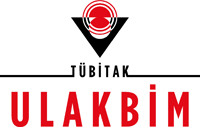THE ROLE OF ORGANIZATIONAL JUSTICE PERCEPTION IN THE EFFECT OF ORGANIZATIONAL CITIZENSHIP BEHAVIOR ON WHISTLEBLOWING: A RESEARCH ON WHITE COLLAR EMPLOYEES
Keywords:
Organizational citizenship behavior, organizational justice, whistleblowing, white collar employees, organizational managementAbstract
At the heart of strategies for promoting ethical behavior and maintaining transparency in organizations lies the phenomenon of whistleblowing, an action that bridges the gap between individual actions and the collective integrity of the organization. In this context, it is important to analyze the underlying mechanisms that drive employees’ choices to report misconduct and thus gain a deeper understanding of the ethical dynamics permeating contemporary organizations. The study examined the relationship between organizational citizenship behavior and whistleblowing, focusing on the mediating role of organizational justice. A sample of 448 white-collar service-sector employees was selected for the study. The research data were analyzed with Smart PLS 4 and structural equation modeling was used for the analysis. According to the findings of the study, organizational citizenship behavior and all dimensions of organizational justice perception (distributive justice, procedural justice, and interactional justice) have a positive effect on employees’ whistleblowing actions. However, it was determined that all dimensions of organizational justice perception play a mediating role in the effect of organizational citizenship behavior on whistleblowing. Encouraging organizational citizenship behavior and supporting an organizational culture based on organizational justice will create a solid framework that strengthens whistleblowing behavior, thus strengthening the ethical fabric and accountability mechanisms of the organizational ecosystem.









